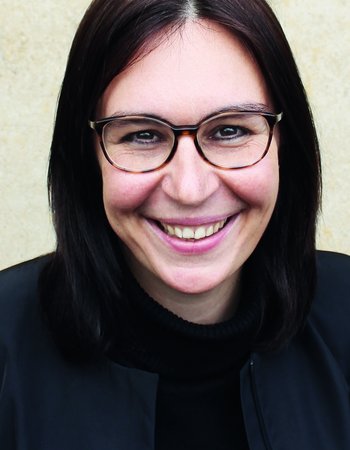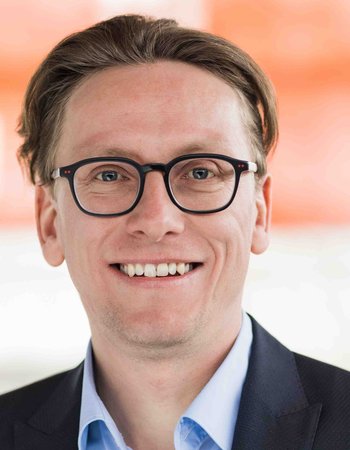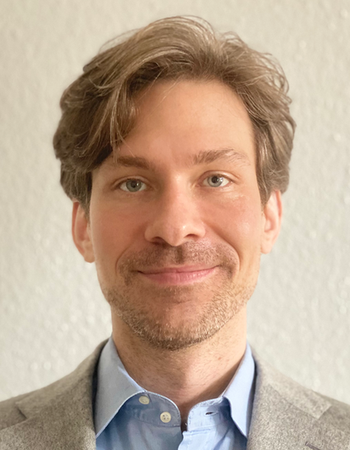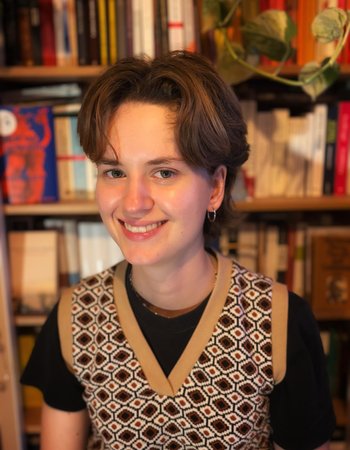Economic Property and Political (In)equality: Economic Property and Political (In)equality:

Outline
Building on these findings, the project analyzes the impact of property on representative democracy in Germany using a mixed-methods research design with three new research foci:
First, we examine whether our previous findings indicate increasing importance of financial resources in politics or even a structural shift towards an "unequal democracy" in Germany. This question will be answered by a longitudinal extension of our previous studies: Our qualitative panel study on recruitment in the constituencies will be continued in a second wave with an expanded focus on parliamentary careers. In addition, the database on the careers of legislators and members of government will be maintained by including an additional legislative period as well as periods after parliament and government. To study long-term changes in attitudes and policy positions of legislators, we compare them with previous MP surveys.
Secondly, the so-called "revolving door effect", which describes the movement between leading positions in politics and business, is used to examine in greater depth the influence of economic interests on politics, and thus — in addition to sideline jobs already studied — another suspected mechanism for unequal representation. In this context, we investigate the careers of individuals after they leave politics, and thereby the interactions and entanglements between political and economic elites. This area is of particular interest for analyzing the invisibilization of the effects of property and the relationship between the state and the economy. Third, we examine how the spatial context influences unequal access to parliament and unequal representation in Germany. East-West differences in campaign financing, as well as the qualitative interviews conducted in the districts during the first funding phase, point to spatially contingent property effects. In order to investigate the interplay between social inequality and spatial concentration or inequality of property, existing individual-level data will be linked to spatial context variables at the district level and analyzed using multilevel analyses. All findings are consolidated in an integrated analysis that studies the impact of property on political recruitment and representation, as well as possible indication of an “unequal democracy” in Germany. Thus, this project makes a central contribution to the Collaborative Research Center's core questions about the effects of property and property-induced structural transformations.
Project Activities
Publications
- Vogel, Lars (2024): "Regionale Verankerung und Mobilität von Eliten in Deutschland", In: Vogel, L.; Lorenz, A.; Pates, R. (eds.) Ostdeutschland – Identität, Lebenswelt oder politische Erfindung? Wiesbaden: Springer VS.
- Kollmorgen, Raj, Lars Vogel, und Sabrina Zajak (eds.) (2024): Ferne Eliten. Die Unterrepräsentation von Ostdeutschen und Menschen mit Migrationshintergrund. Springer.
- Reiser, Marion (2024): "The Informal Rules of Candidate Selection and Their Impact on Intra-Party Competition", In: Party Politics 30(1), 85-95.
- Reiser, M.; Rinne, J.; Vogel, L. (2024): "Affluence and Preferences for Democratic Representation: The Case of German Citizens and Legislators", In: SocArXiv, https://doi.org/10.31235/osf.io/aen7q.
- Rinne, J.; Graner, J. (2024): "Unschärfen der Vermögensmessung und deren Implikationen für die soziale und politische Ungleichheitsforschung", In: SSOAR, https://nbn-resolving.org/urn:nbn:de:0168-ssoar-93834-7.
- Rinne, J.; Janzing, M.; Bönnighausen, H. (2024): "Property vs. Usage Rights: Attitudes of Citizens and Political Elites", Working Paper Nr. 6, Jena: Collaborative Research Center/Transregio 294 "Structural Change of Property“.
- Coffé, Hilde; Reiser, Marion (2023): "How perceptions and information about women’s descriptive representation affect support for positive action measures“, In: International Political Science Review, DOI: 10.1177/0192512121995748.
- Hebenstreit, Jörg (2023): "Lobbyismus und Wahlkampffinanzierung – ‚It’s all about the Money'“, in: Lammert, C.; Siewert, M.; Vormann, B. (eds.), Handbuch Politik USA, 3. ed., Wiesbaden: Springer VS, online first.
- Krämling, A.; Geißel, B.; Rinne, J. R.; Paulus, L. (2023): "Direct democracy and equality: A global perspective“, In: International Political Science Review, 44(4), 507-522. DOI: 10.1177/01925121211058660.
- Leipold, Alexander (2023): Der Einfluss von Diskurskoalitionen auf die Besteuerung von Unternehmen. Ein Vergleich von Pressedebatten und Anhörungen im Deutschen Bundestag zur Steuergesetzgebung seit 1965 (Dissertation), Leuphana Universität Lüneburg, https://doi.org/10.48548/pubdata-240.
- Reiser, M.; Rinne, J.; Vogel, L. (2023): "Unequal Democracy aus Sicht der Abgeordneten. Befunde der Jenaer Abgeordnetenbefragung 2022“, In: Zeitschrift für Parlamentsfragen 54(4), 889-911, https://doi.org/10.5771/0340-1758-2023-4-889.
- Reiser, M.; Reiter, R. (2023): "A (New) East–West-Divide? Representative Democracy in Germany 30 Years after Unification“, In: German Politics, 32:1, 1-19, DOI: 10.1080/09644008.2022.2049598.
- Vogel, Lars (2023): „The Impact of Political Professionalization on Legislators-Citizen Congru- ence in Policies and Process Preferences“, in: Revue internationale de politique comparée 30(2), 177-213, https://www.doi.org/10.3917/ripc.302.0177.
- Vogel, L.; Schneickert, C. (2023): "Political Elites“, In: Grasso, Maria & Guigni, Marco (eds.) Enyclopedia of Political Sociology, Edward Elgar.
- Reiser, Marion (2022): "Strategies of the Party Selectorate: The Two-Level Game in District Selec-tions in Germany’s Mixed Member Electoral System", In: Frontiers in Political Science 3(780235).
- Vogel, Lars (2022): „(How) Perceived Descriptive Underrepresentation Decreases Political Sup- port: The Case of East Germans“, in: German Politics, 32:1, 169-190. DOI: 10.1080/09644008.2022.2058494.
- Vogel, Lars (2021): "Rekrutierungsmuster und -mechanismen von Regierungsmitgliedern", In: Korte, K.-R.; Florack, M. (eds.) Handbuch Regierungsforschung, Wiesbaden: Springer Fachmedien, 1–18.
Lectures
- Marion Reiser, Jonathan Rinne and Lars Vogel: "Drivers of Unequal Issue Congruence – Wealth and Party Ideology“, Congress of the German Political Science Association (DVPW), September 2024, Göttingen (accepted).
- Marion Reiser, Jonathan Rinne and Lars Vogel: "Unequal Preferences for Democratic Representation – The Influence of Wealth among Citizens and Legislators”, Workshop “Representation and Responsiveness”, February 2024, Mainz.
- Marion Reiser, Jonathan Rinne and Lars Vogel: "MPs’ perspective on unequal democracy Findings from the Jena Parliamentary Survey 2022”, Workshop “Representation and Responsiveness”, February 2024, Mainz.
- Marion Reiser, Jonathan Rinne and Lars Vogel: "Eigentum und politische Repräsentation: Zum Einfluss von Eigentum auf die Prozesspräferenzen von Abgeordneten und Bevölkerung“, lecture as part of the event series ‚Heterogeneous Representation“, Otto-Suhr-Institut at FU Berlin, January 2024, Berlin.
- Jonathan Rinne: "What makes a good democratic decision-maker” Roundtable, Workshop “What Do Citizens Want From Democracy?”, December 2023, Frankfurt.
- Marion Reiser, Jonathan Rinne and Lars Vogel: “Economic and political Equality: Does wealth affect the process preferences of citizens?”, IPARL Workshop, November 2023, Berlin.
- Marion Reiser, Jonathan Rinne and Lars Vogel: "Abgeordnete und Eigentum. Befunde einer Abgeordnetenbefragung in Deutschland“, DVPW section conference "govern", October 2023, Berlin.
- Marion Reiser, Jonathan Rinne and Lars Vogel: " The impact of wealth on responsiveness: The Case of German MPs ”, SFB conference of the project areas, October 2023, Erfurt.
- Reiser, Marion, Rinne, Jonathan & Vogel, Lars: "The role of property in representation: The Case of German MPs. Panel: "Does it matter who governs? On the link between descriptive and substantive representation“ Panel, ECPR General Conference, Prague. (09/2023)
- Marion Reiser, Jonathan Rinne and Lars Vogel: "The impact of wealth on responsiveness: The Case of German MPs“, ECPR General Conference August 2023, Prague.
- Reiser, Marion, Rinne, Jonathan & Vogel, Lars: “Economic Inequality and Notions of Democratic Representation”. Workshop "Democratic Citizens and Political Elites“, Universität Mainz. (03/2023)
- Marion Reiser, Jonathan Rinne, and Lars Vogel: „Conceptions of Democratic Equality Among MPs and Citizens in Germany“, Workshop “Democratic Citizens and Political Elites: Communication, Interaction, and Congruence”, März 2023, Mainz.
- Vogel, Lars (2023): "One size fits it all? Citizens’ conceptions of elites and democracy“, Panel "Democratic Citizens and Political Elites“, Elites and Public Opinion: Analysing the Interaction of Public Opinion, Policy-Making and Party Strategy”, ECPR General Conference. (Prag 09/2023)
- Marion Reiser, Jonathan Rinne and Lars Vogel: "Political Professionalization and Political Equality: Representation and Participation in Parliaments in Germany“, Workshop "The Individual and Contextual Effects of Economic Scarcity on Political Integration”, March 2022, Milan.
- Marion Reiser: "Digitale Willensbildung bei der Kandidatenaufstellung“. Political Science Symposium 'Digitale Parteiendemokratie‘ of PRuF, April 2022, Düsseldorf
- Vogel, Lars (2022): "Kommunale Repräsentanz und gesellschaftliche Vielfalt“, Workshop, Böll Stiftung. (Online Februar 2022)





